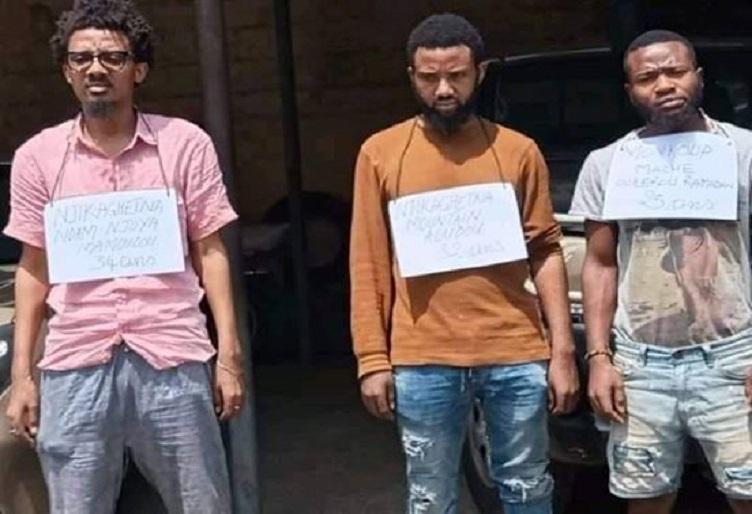Cameroonian police arrested three scammers who used the identity of Samuel Eto’o. These scammers used accounts in the name of the former “Indomitable Lion” to extort money from his fans on social networks. The world football star is out of his reserve and warns against this practice.
The security operatives from the coastal region arrested the swindlers on Monday, June 15. The three “fake Samuel Eto’o”, according to several online media outlets, including the website Orange Football Club, is accused of usurping the identity of the quintuple African Golden Ball to subtilize money from his many fans on social networks.
Utilizing fake dedicated pages or personalized accounts in the name of the star, these specialists of a particular genre offered the victims to take part, through financial contributions, in so-called charitable works conducted in the name of Samuel Eto’o.
No details were made about the amounts that these usurpers actually managed to extort from the most gullible fans of the former Indomitable Lion.
In a post on his Facebook account, Martin Camus Mimb, a Cameroonian journalist reputed to be close to Samuel Eto’o, said that these alleged cybercriminals “were operating from Foumban, in western Cameroon. And impersonated Samuel Eto’o to abuse people on social media.”
For his part, the former Cameroonian international footballer did not remain insensitive to this umpteenth manipulation, which tarnishes his image once too much. On his Facebook account, the former FC Barcelona player has warned of possible crooks who would be guilty of such practices.
In Cameroon, the practice of scams on social networks, through identity theft has become commonplace. Stars of the media, music, cinema, or high-ranking official of the state quite often see their identity used by strangers to scam the citizens.
Reacting to the resurgence of this phenomenon, Kevin Monkam, a cybersecurity specialist, points out that “the rise of cybercrime is a consequence of the complexification and interconnection of information systems.
“Cybercriminals are using increasingly sophisticated anonymity techniques, and in the end, we find ourselves in an infinite spiral of hunters and prey,” explains this former Cameroonian hacker, converted to cybersecurity.
Last April, the Presidency of the Republic asked, in a letter addressed to the Director-General of the National Agency for Information and Communication Technologies (ANTIC), to track down – with the assistance of the competent authorities – these acts of cyber criminality.
